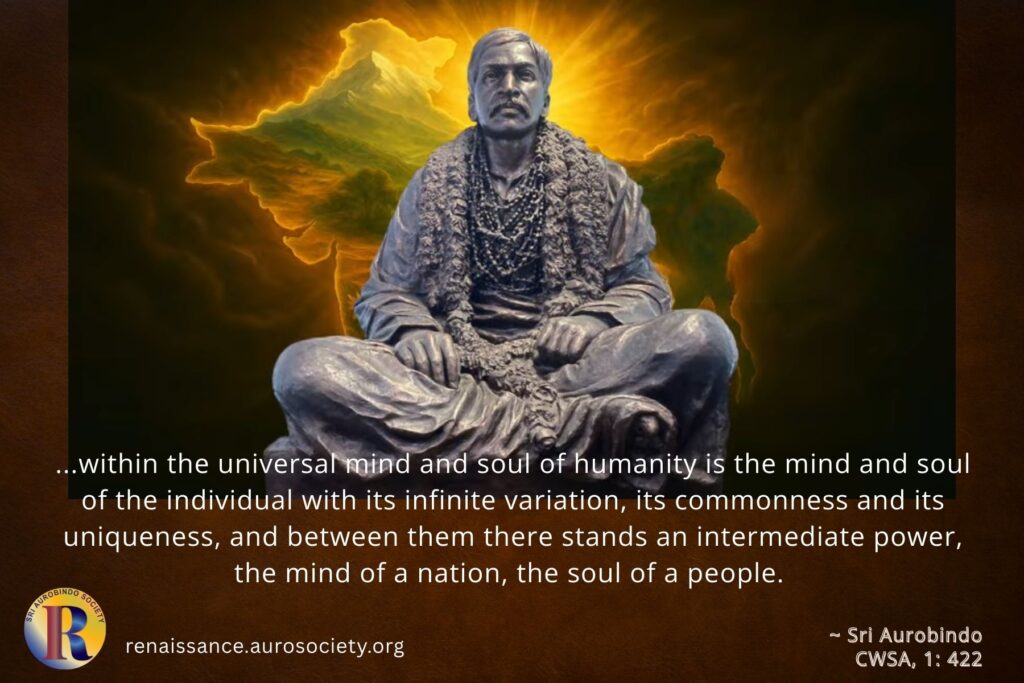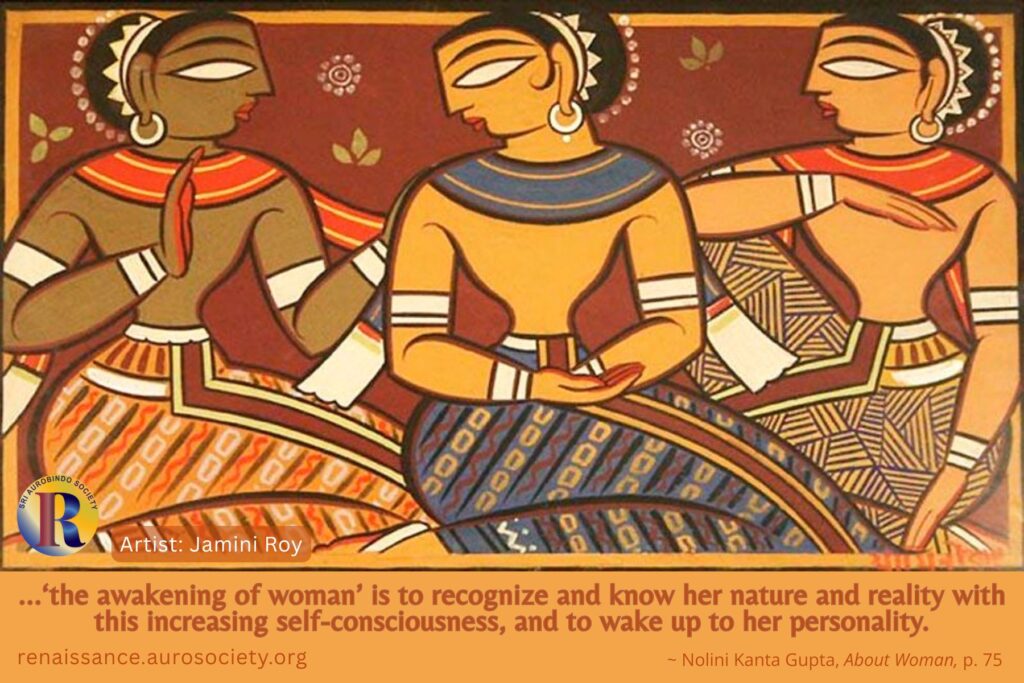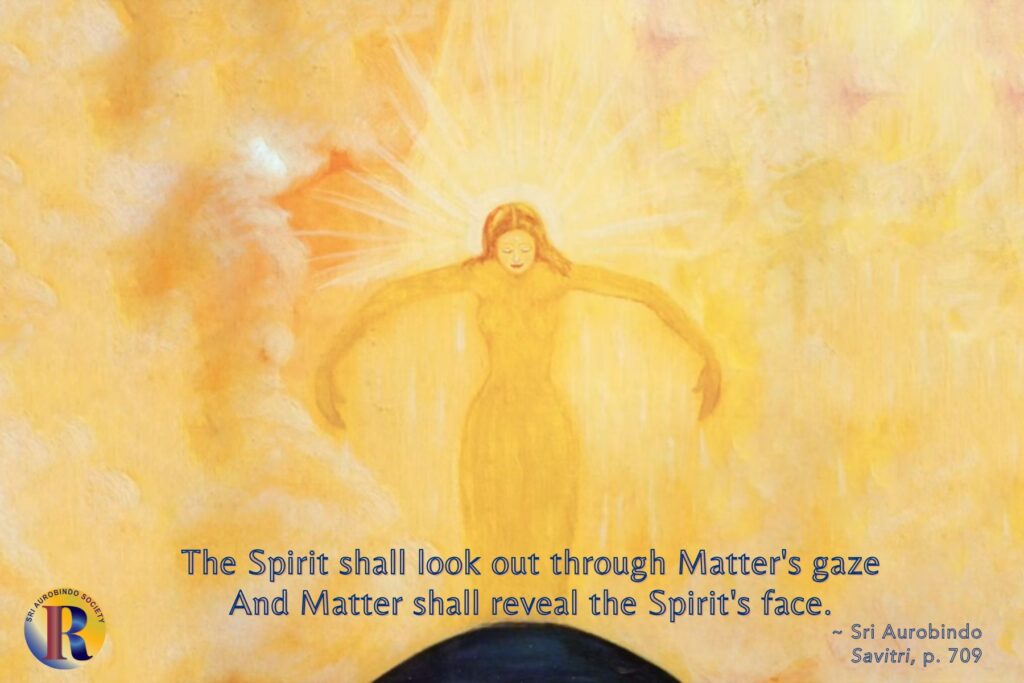New Year Greetings to our readers!
After a break in December, we are happy to be back with our new issue, the first issue of 2023. We continue with our ongoing series – All Life is Yoga, and this time we focus on the theme – Human Relations and Yoga.
Sri Aurobindo writes in The Synthesis of Yoga:
Life is indispensable to the completeness of the creative spiritual realisation, but life released, transformed, uplifted, not the ordinary mentalised human-animal life, nor the demoniac or Titanic, nor even the divine and the undivine mixed together.
Whatever may be done by other world-shunning or heaven-seeking disciplines, this is the difficult but unavoidable task of the integral Yoga; it cannot afford to leave unsolved the problem of the outward works of Life, it must find in them their native Divinity and ally it firmly and for ever to the divinities of Love and Knowledge.
~ CWSA, Vol. 23, p. 173
This served as our inspiration as we began our seeking for Sri Aurobindo’s and the Mother’s Light on the multidimensional and multilayered topic of Human Relations.
How do we find that inner divinity in our oh-so-human love and relationships? What is the ideal that our Gurus speak of, and how prepared each one of us is to work toward that idea? What are the challenges? These and other related topics became our research questions.
As has been our practice with earlier issues, we do not aim to present an exhaustive compilation of everything Sri Aurobindo and the Mother have said on human relationships. But we hope to highlight several of their insights which help throw a deeper light on selected aspects of this rather complex topic.
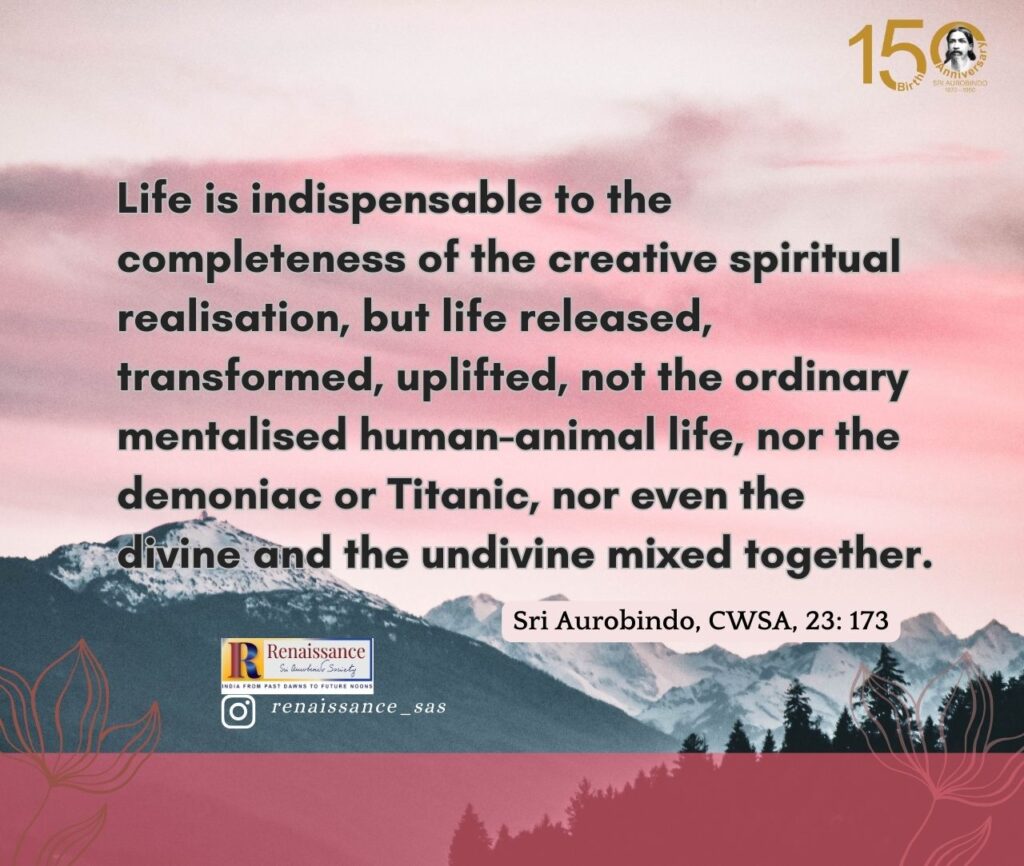
As our ‘Guiding Light’ we feature selected words of the Mother which speak of the subtle relation between human love and Divine love. She explains that Divine love is an eternal, universal and a supreme force which descends and in its supreme self-giving manifests in even the darkest matter. She also illuminates that the deeper yearning behind all the movements of the creation, including human love, is to unite with the Divine, though we humans are unaware of it.
We also feature some helpful guidance on the complexity of man-woman relationship especially when one or both the individuals also aspire for a spiritual life. Sri Aurobindo and the Mother always emphasised that each case is different, and their guidance was directed to the specific context of each individual’s inner aspiration. Nonetheless, there are several nuggets of wisdom that are helpful to a vast number of aspirants.
See our flipbook:
Sri Aurobindo on Human Relations and Yoga
Sri Aurobindo elucidates that one of the aims in Integral Yoga is to purify and transform the usual egoistic human love into a purer love towards the Divine at all levels of the being. We feature a few selections from his letters where he explains that once one enters the spiritual life, the relationship with the Divine takes precedence over the ordinary social relations. Either the family relations naturally fall off or become the ground for karmayoga based on the soul’s need.
In our ‘Sunlit Path’ feature we highlight a few letters of Sri Aurobindo in which he guides the sadhaks on the right place of friendship and affection in the path of Integral Yoga. Extremely helpful is his penetrating insight into the nature of human love that is primarily a movement of the vital ego.
In another feature, we present selected passages from Sri Aurobindo and the Mother which give us practical guidance on how to handle the sources of disharmony in human relations in daily life. These sources include narrowmindedness, dislike and fault-finding in others.
For our ‘Book of the Month’ feature, we present some excerpts from Kishor Gandhi’s book titled, ‘Social Philosophy of Sri Aurobindo and the New Age‘. The selection focuses on the future of the family as explained by the Mother.
In a three-part article, Renaissance Editor, Dr. Beloo Mehra weaves together some spiritual insights on love and human relationships from various works of Sri Aurobindo and the Mother along with examples from Indian literary tradition. Chitra Kolluru shares how she is experiencing a deepening of her understanding of human relations as she makes conscious effort to be an aspirant on the path of Integral Yoga.
A Note to the Readers
Most of the passages selected from conversations and letters of the Mother and Sri Aurobindo featured in this issue are context based. To be more precise, some of the advice we find in these words was given specifically to the sadhaks in the Ashram who were pursuing Integral Yoga in their daily life. Some of our readers who are not necessarily pursuing this path may not find this guidance wholly applicable for them. Or even if they are aspiring for a spiritually guided life may not find themselves ready to receive this advice. That need not discourage anyone.
As aspirants it is important that we become conscious of the level of our development in various parts of our being. Such self-awareness, particularly of the movements in our vital and physical parts and their demands and preferences, will be helpful as we contemplate on the words of the Mother and Sri Aurobindo on human love and relations.
We also need to become conscious of our commitment to our spiritual pursuit.
Even when our highest aspiration is to live the ideals given to us by the Mother and Sri Aurobindo — whether it is about relationships, love, marriage, sex, work or any aspect of life — it is important to be precisely aware of and clear on where one is in terms of one’s own evolutionary journey. To what extent it is possible for me to live their teachings at this moment? And for which teaching I may still need to make much inner progress?
We must be realistic in this awareness, and simultaneously continue to keep calling for the divine grace every moment so that we can progress towards greater possibilities. We must never let go of the absolute faith in the Divine that it will some day become possible to realise the truth of their teachings.
It is good to accept one’s present state completely, including all the defects, without beating oneself for what one is not today. This does not mean that we entertain the defects or hold a diluted aspiration, but that we do not depreciate ourselves or feel dejected in the name of aspiration or humility.
An excessive depreciation is no better than an excessive praise. True humility lies in not judging oneself and in letting the Divine determine our real worth.
~ The Mother, CWM, Vol. 16, p. 176
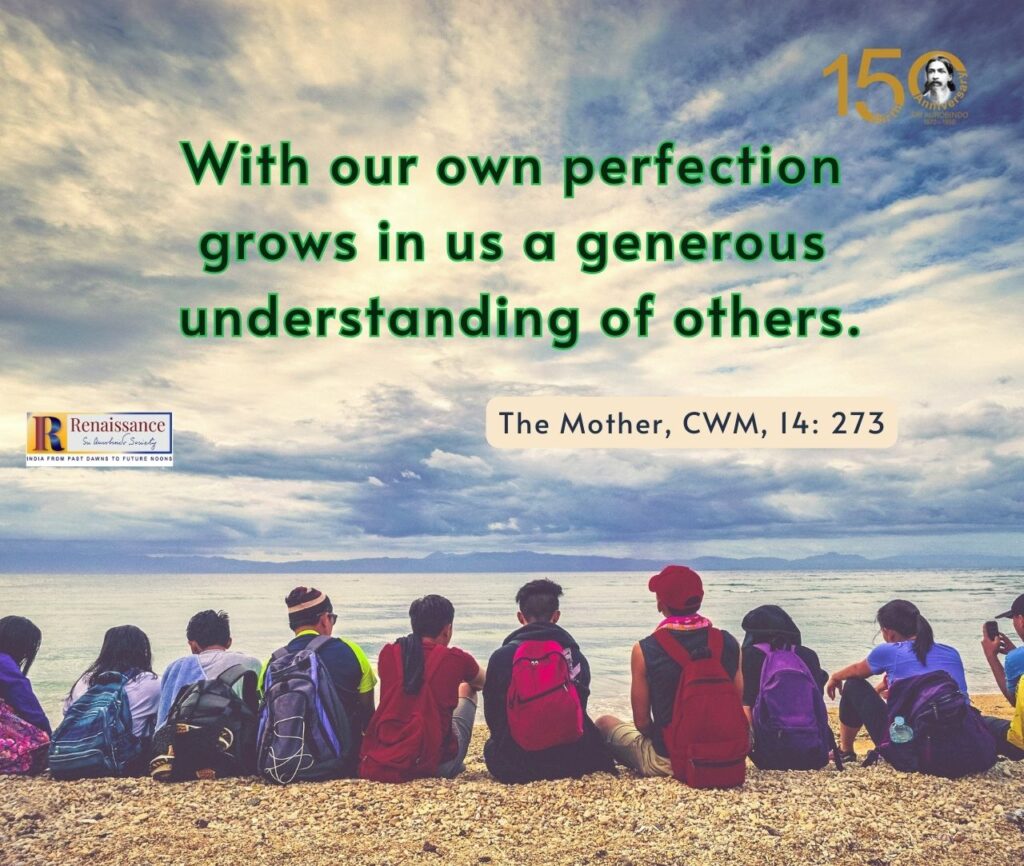
Let us take an example. For a question regarding marriage, Sri Aurobindo replied to a disciple:
If she has the true call to the Yoga and not only an impulse due to the influence of others, the necessary conditions will be created. Even if the circumstances seem adverse, it will be only a test or ordeal and she will come through in the end.
On the other hand, if she is not yet truly called or if her nature is not yet ripe, the marriage may take place and she may have to go through the ordinary life before she can return to the spiritual.
(CWSA Vol. 35, pp. 725-726)
So the point is to become aware of the precise state of evolution of one’s own physical, vital, and mental parts and realise how much they can support one’s deep psychic fire at present. It is important to accept one’s state of evolution entirely without judgments and harshness. And it is equally important to avoid self-depreciation and dejection of oneself for one’s present state.
The way forward is to receive the words of the Mother and Sri Aurobindo with an open and sincere heart.
While at the same time we must aspire to live the Truth of these words with as much sincerity and honesty as is possible according to our own context and given the limitations of the present state of our nature. We surrender this effort at the feet of the Mother along with all the imperfections and defects of our nature to the Mother and pray for her Divine Grace to purify our nature more and more.
This is a sincere way to keep moving towards the ideals given to us by Sri Aurobindo and the Mother. At the same time, we must also be extremely vigilant because the vital in us also has a tendency to constantly look for an opportunity to deceive and find a loophole to fulfil its own little preferences and desires. This may even mean misinterpreting the words of the Mother and Sri Aurobindo according to its petty demands. So an aspirant must never let go of vigilance on the path to becoming more conscious of one’s inner movements.
Some of these complexities were also addressed in the two events that were organised as part of our work on this theme of Human Relations and Yoga.
Events on the Theme of Human Relations
In the past few weeks we conducted two events that addressed this theme of human relations, love and sadhana. On December 22, 2022, we invited Ms. Lakshmi Jyothi Manapragada to share some thoughts on the topic – “Individual and Family: Insights from the Social Thought of Sri Aurobindo.”
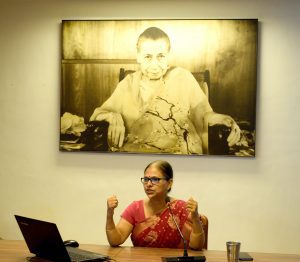
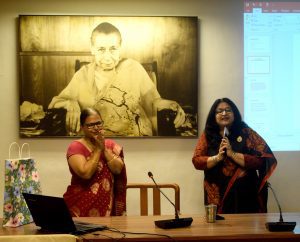
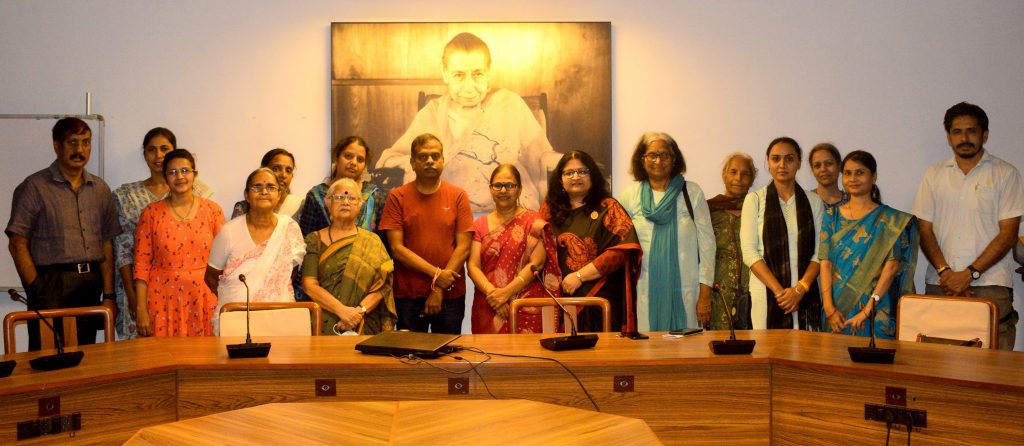
Read all about it HERE, and see a gallery of pictures from the event HERE.
Our second event was an engaging two-hour interaction with a group of individuals ages 18-30 years. We were invited to conduct a panel discussion titled ‘Rethinking Relationships in a New Light’ with participants attending the annual All-India Youth Camp organised by AuroYouth. In a free and frank exchange of ideas, many layers to the issues surrounding love and relationships were explored in this session.
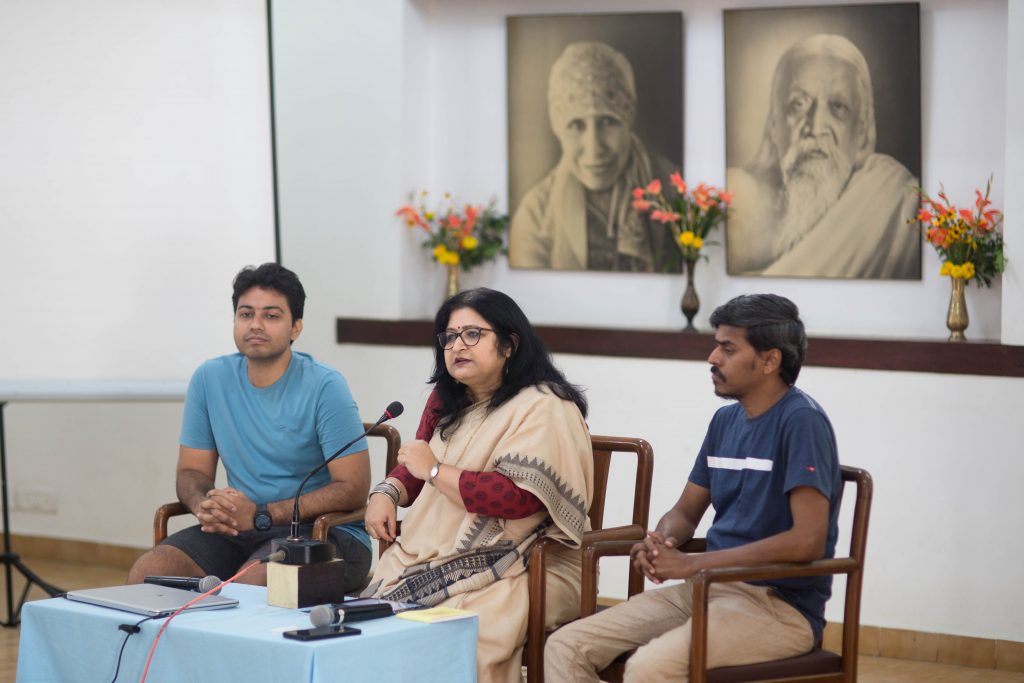
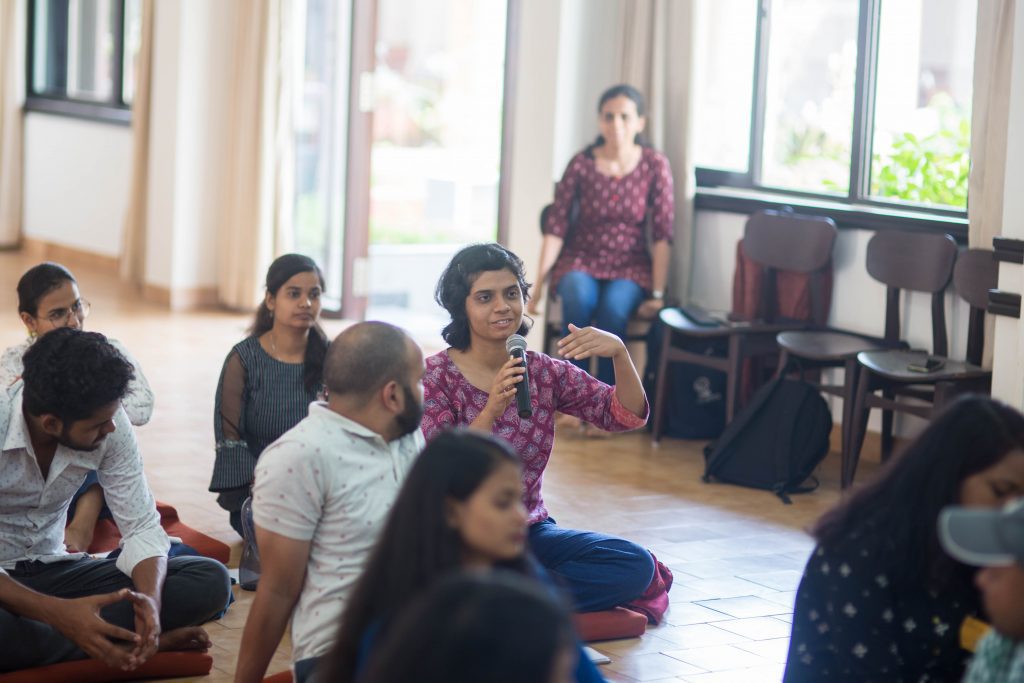
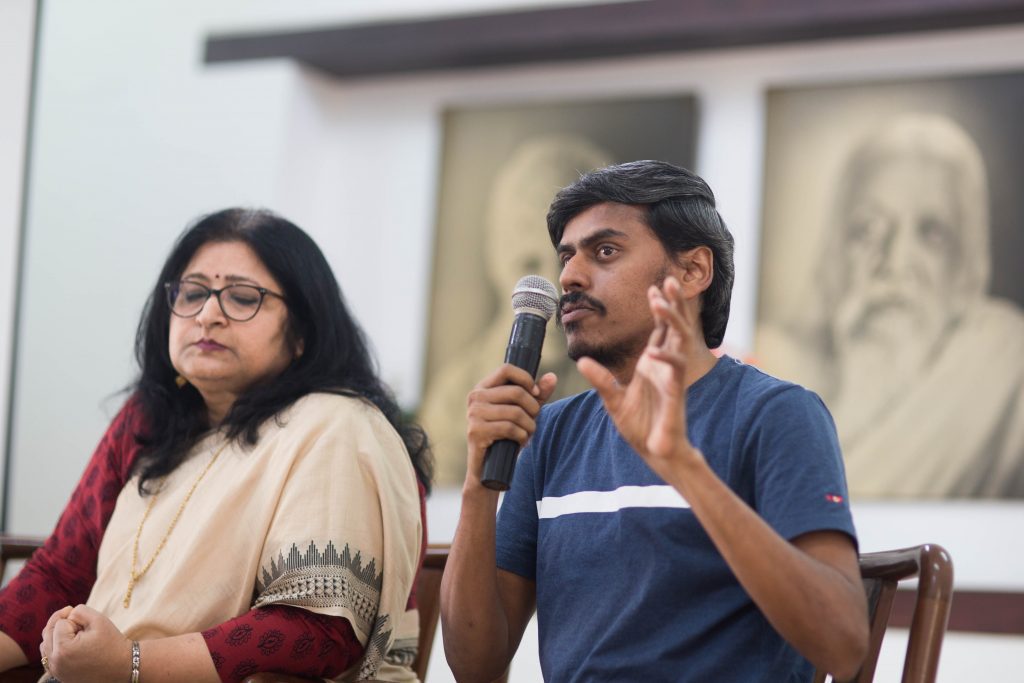
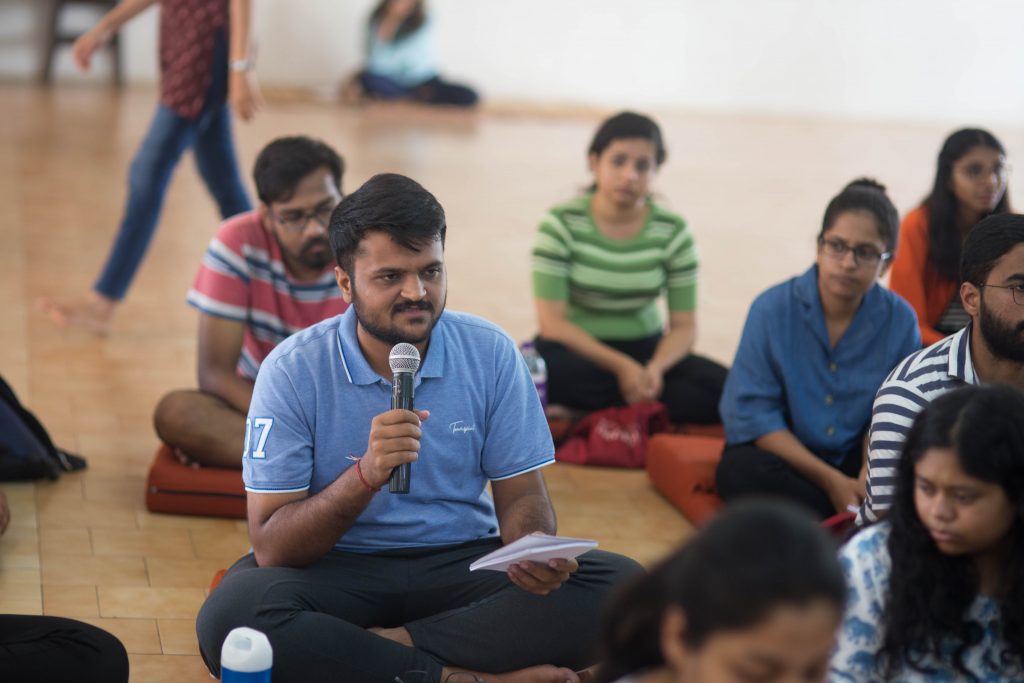
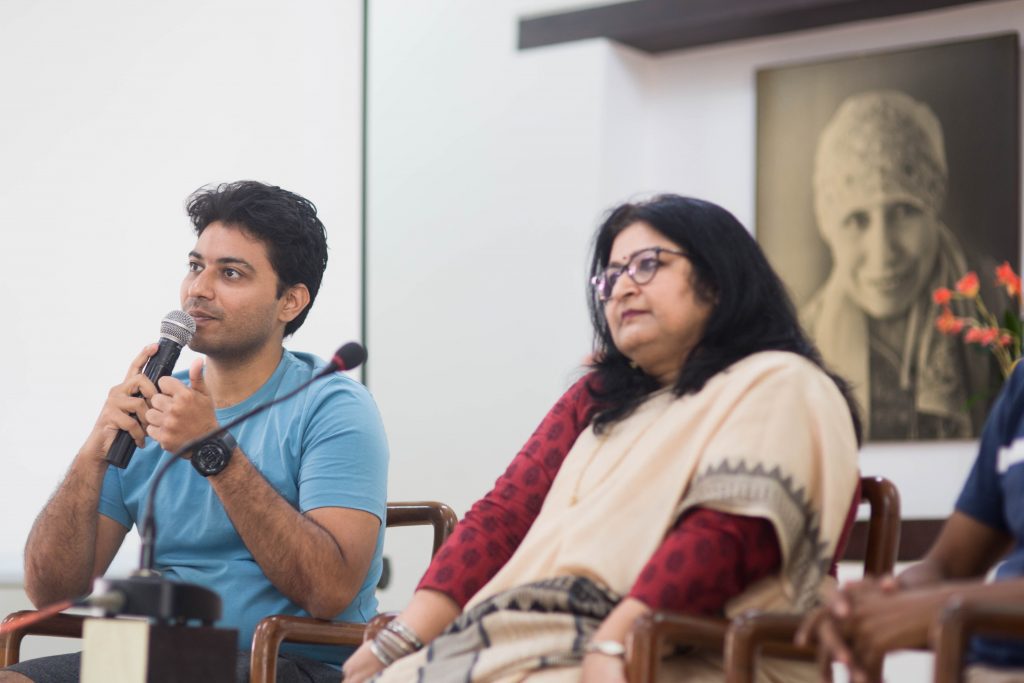
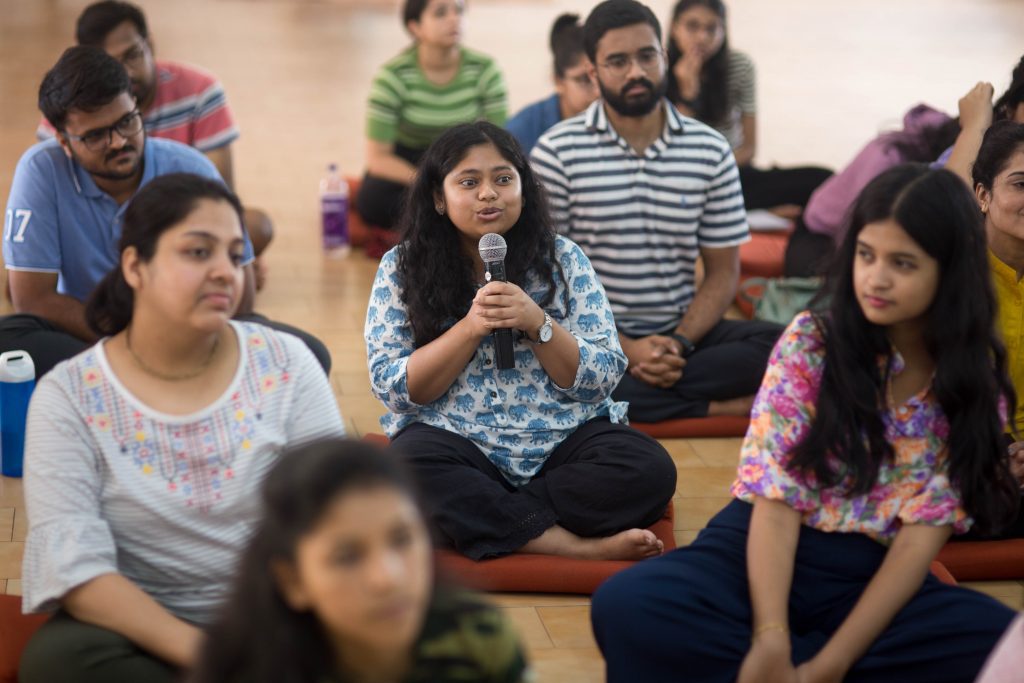
Drama, Poetry, Stories and More
Sri Aurobindo wrote several dramas which present human life with all its clashes and jostlings, burning passions, voluptuous luxuries and huge ambitions. What spiritual light do these works hold for us? We invite you to explore this as you read a review of M. V. Seetharaman’s book titled, ‘Studies in Sri Aurobindo’s Dramatic Poems‘. This review by Ravindra Khanna was first published in April 1966 issue of Sri Aurobindo Ashram journal Mother India: Monthly Review of Culture.
For our ‘Tales and Stories’ feature we highlight a popular Pauranic story as retold by Sri Ramakrishna. Such Indeed is Maya is a story illustrating the hold our attachments have on the ordinary understanding and experience of human relationships. In Make Not a Bond of Love, Narendra Murty tells a beautiful Zen story to illustrate the significance of cultivating the attitudes of detachment (vairagya) and evenness of mind (samatvam) towards our human relationships.
We are happy to welcome Gayatri Majumdar in our Renaissance team of writers. Her poem, Shilpi – Who Saw and Sang evokes a range of subtle emotions that make up most of our human relations. And yet there is always that gentle reminder, a call even to transcend the bondage of those emotions toward an inner freedom which alone can be the true basis for any relationship.
Also see:
The Mother on Human Relations and Yoga

In our ongoing series from ‘Sri Aurobindo Circle archives’ we feature part 2 of Prema Nandkumar’s essay focusing on the Mahabharata in the light of Sri Aurobindo’s interpretation of Indian culture. Emphasising that the Kurukshetra war must have been caused by several political factors, she reminds us that Sri Aurobindo analysed the preceding political tangle which is as important as the war.
As always, we offer this work at the lotus feet of Sri Aurobindo and the Mother.
In gratitude,
Beloo Mehra & Raamkumar (for Renaissance Editorial Team)
~ Design: Beloo Mehra

